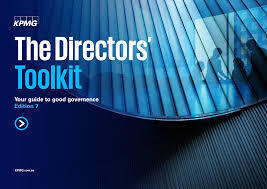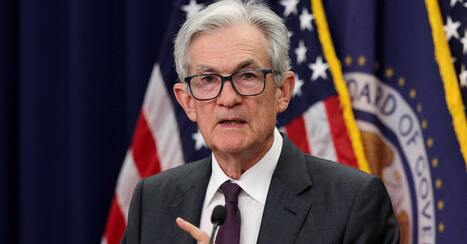 Your new post is loading...
When activist investors first began making headlines in Tokyo a decade ago, it was largely viewed as a foreign curiosity—an aggressive style of shareholder engagement that seemed out of place in Japan’s relationship-driven corporate world of stability, consensus, and tradition. Few would have guessed that ten years in, activist investment would have evolved from a niche phenomenon into a powerful and increasingly accepted force shaping Japanese corporate strategy. Since 2015, Japan’s total activist capital investment has grown at an annual rate of 32%, and shareholder proposals have climbed 27% a year. This June, the number of activist shareholder proposals hit an all-time high, Reuters reported. What was once a foreign curiosity has become a central force reshaping Japan’s corporate governance. [...]
Three questions every CEO and board should ask now: - What parts of our business would an activist target first to bring it to its “full potential”?
- Do we have the governance strength to hold up under scrutiny?
- Are we listening to all shareholders—or just the most familiar ones?
President Trump’s attempt to fire Lisa Cook, a Fed governor, will set off a long legal battle. Economists warn it could lead to higher inflation and government borrowing costs. In his monthslong battle to take control of the Federal Reserve, President Trump has tried threats, name-calling and — in one particularly memorable news conference with a hard-hat-wearing Jerome H. Powell — public humiliation. But he has always stopped short of the step that advisers warned could roil financial markets and upend a pillar of the global economy: attempting to fire a Fed official. On Monday evening, he took that leap. [...] But Mr. Trump has made little secret of his true aim. He wants to control the Fed. Janet L. Yellen, who was Mr. Powell’s immediate predecessor as Fed chair and later served as Treasury secretary under President
Denmark's foreign minister has summoned the top U.S. diplomat in Copenhagen over Danish intelligence reports that U.S. citizens have been conducting covert influence operations in Greenland, the ministry said on Wednesday. Public broadcaster DR cited unnamed sources as saying the government believed at least three U.S. nationals with ties to President Donald Trump's administration had been involved in influence operations aimed at promoting Greenland's secession from Denmark to the United States. "We are aware that foreign actors continue to show an interest in Greenland and its position in the Kingdom of Denmark," Foreign Minister Lars Lokke Rasmussen said in a statement. "It is therefore not surprising if we experience outside attempts to influence the future of the Kingdom in the time ahead," Rasmussen said.
In the first instalment of our Proxy Season Global Briefing, we provide a rundown of headlines and key trends relating to shareholder rights and corporate governance from around the globe. Glass Lewis clients can access the full version, which also covers executive pay, board composition and shareholder activism, via the content libraries on Viewpoint and Governance Hub. The 2025 proxy season saw more in-person meetings globally, APAC governance reforms, and growing interest in non-financial reporting audits. Meanwhile, corporate reincorporations within the U.S. reached a three-year high as states jockeyed to offer the most attractive listing regime.
Corporate governance was born in the 1970s as lawmakers and the Securities & Exchange Commission pushed to prevent economic unrest by holding companies and their directors accountable. While many corporate governance trends have come and gone since then, what remains is a desire among regulators and shareholders alike to see corporate boards operate transparently and ethically. Today, governance is growing more complex due to AI, which creates both opportunities and risks for organizations. Our global regulatory roundup shows that artificial intelligence is driving far-reaching digital transformation at a time when cybersecurity threats continue escalating. Geopolitical risks and evolving regulatory frameworks have further challenged boards to modernize their governance infrastructure. Despite this rapid transformation, significant gaps remain: while governance technology adoption accelerates, many organizations still struggle with fragmented systems and manual processes that limit strategic agility.
Air Canada flight attendants will begin voting to ratify a tentative agreement reached last week between their union and the air carrier, amid some internal dissent that the deal does not guarantee sufficient wage increases. The labour dispute between Air Canada and the Canadian Union of Public Employees (CUPE) made headlines when striking flight attendants defied a back-to-work order issued by the federal government. The strike lasted three days and ground domestic and international flights to a halt. But it was a move that ultimately culminated in CUPE brokering a tentative deal with Air Canada which gave flight attendants, for the first time, compensation for the unpaid work they do before an aircraft departs. Between Aug. 27 and Sept. 6, more than 10,000 flight attendants will have the chance to ratify the deal, or vote it down and have an arbitrator decide on the final terms of a renewed collective agreement.
Canada and Poland struck a new strategic partnership on trade, defence and energy on Monday, as Prime Minister Mark Carney continued a five-day trip to Europe. After making a surprise visit to Kyiv for Ukrainian Independence Day on Sunday, Carney travelled to Warsaw for a meeting with Polish Prime Minister Donald Tusk. Later Monday, he flew to Berlin, where he will hold meetings with German Chancellor Friedrich Merz before ending the trip by visiting Canadian troops stationed in Riga, Latvia. Carney and Tusk said they’ve agreed to work more closely in areas such as defence, aviation, cybersecurity and clean energy. The two nations will start holding annual bilateral meetings and work to encourage industrial partnerships in those sectors. Carney said the Polish partnership will drive European demand for Canadian exports and solidify Canada’s defence presence in Europe.
When COVID-19 first hit, many boards assumed they could delay CEO transitions until the storm passed. But five years later it’s clear there is no “other side” of the storm. In this unpredictable environment, where traditional forecasting models falter, it can be difficult for boards to know how to plan for succession—and many, in fact, are getting it wrong. That’s the conclusion we came to after our team at Spencer Stuart studied CEO transitions across companies in major U.S. and European stock indexes. When it comes to succession planning, boards have recently been engaging in three particularly problematic behaviors. The first is avoiding making decisions. CEO transitions in the S&P 500 are down 13% since 2020 and have been at decade lows in three of the past four years. The logic seems to be: Don’t change captains midstorm. But when the rough weather isn’t going to end, it makes no sense to wait things out. Inaction just sends a counterproductive message to the organization: that now is the time to hunker down, not evolve. Companies with that mindset miss out on valuable opportunities to introduce fresh thinking, signal shifts in priorities, and create momentum.
Tabletop exercises can help boards prepare for risks from a potential Taiwan conflict. The world is entering a period of geopolitical uncertainty as relations between the United States and countries such as China continue to evolve. Corporate leaders are trying to predict the outcome of ever-changing policies, including those related to tariffs and export controls. However, instead of focusing solely on near-term risks, boards should also consider how to plan for low-probability, high-impact risks through scenario planning. This can help directors and the companies they serve better understand and mitigate risks flowing from less probable US-China conflicts.
Desjardins Group says it is shuffling and adding to its executive ranks starting Sept. 2. The co-operative financial group says Denis Dubois will take on the role of president and CEO, moving up from his current positions of executive vice-president of wealth management and life and health insurance, as well as chief operating officer of Desjardins Financial Security. Three new members will also be joining the organization’s management committee. Desjardins says Chantal Gagné, who has been with the company for 18 years, will become the new executive vice-president of life and health insurance. Daniel Grossi will be moving up to the role of executive vice-president for information technology from his current title of chief technology, operations and enterprise architecture officer. Meanwhile, Sébastien Vallée will take on the role of executive vice-president of wealth management.
Norway’s sovereign-wealth fund, the largest in the world, said it decided to sell its holdings in U.S. construction company Caterpillar and five Israeli banks. Norges Bank Investment Management—which manages the nearly $2 trillion wealth fund—said Monday that it made the decision because of risks the companies might be contributing to serious violations of human rights in situations of war and conflict. The move comes after the Norwegian Council on Ethics, an independent body, recommended that the sovereign-wealth fund exclude the companies from its portfolio. The council recommended the exclusion of Caterpillar due to its bulldozers being used by Israeli authorities “in the widespread unlawful destruction of Palestinian property.” The council said the company’s products were being used to commit violations of international humanitarian law.
The head of the Alberta Energy Regulator has, for the first time in the agency’s history, cancelled an application hearing for a new fossil fuel project, in what environmental organizations say sets a worrying precedent. Rob Morgan’s decision revolves around applications by Summit Coal Inc. for an underground mine near Grande Cache, Alta., roughly 430 kilometres west of Edmonton. An AER panel had already decided that a hearing was required and set the quasi-judicial proceeding for Oct. 21. But Mr. Morgan quashed the panel’s ruling with his own decision – a move that he acknowledged in his Aug. 21 letter to the company and environmental groups “is without precedent.” “My decision should not be construed as a means by which parties can circumvent hearing or other AER decisions they disagree with,” he said, adding he was not inclined to exercise his discretion to reconsider decisions of hearing panels, out of respect for the process and the autonomy and independence of those panels.
L’Inde se prépare à subir cette semaine les foudres commerciales des États-Unis en représailles à ses achats de pétrole russe, sauf nouveau sursis de dernière minute du président américain Donald Trump. Convaincu que les approvisionnements indiens contribuent à financer la guerre de la Russie en Ukraine, le président américain a annoncé qu’il taxerait les exportations de New Delhi sur son sol de 50 % à partir de ce mercredi. Ce chapitre de la guerre des droits de douane imposée par l’hôte de la Maison-Blanche au monde entier a sérieusement affecté les relations entre les États-Unis et l’Inde, au point d’accélérer le rapprochement de cette dernière avec la Chine. Quel impact ? Le marché américain constitue la première destination des produits indiens, pour un montant de 87,3 milliards de dollars en 2024. Selon les analystes du groupe de services financiers Nomura, une hausse de 50 % des taxes américaines « s’apparenterait à un véritable embargo commercial », avec des conséquences majeures pour les entreprises indiennes « à faible valeur ajoutée ou aux marges réduites ».
|
Take-private deals in Japan are likely to hit a record high this year, exceeding the $40.3 billion total racked up in 2023, according to private equity funds and advisers, as companies bow to pressure to improve returns for investors. Japanese companies once feared private equity as "hagetaka", or vultures. Now they are increasingly open to buyouts and giving up their once-prized listed status in the face of calls from activist investors and the Tokyo Stock Exchange to overhaul capital management and cross-shareholdings. Private equity players say there is unprecedented interest from their backers in opportunities in Japan, with the spate of deals this year bucking a global slowdown in such activity. In the year to August 20, private equity deals totalled $27.6 billion, almost triple the $9.5 billion over the same period in 2024, Dealogic data shows.
On the heels of a controversial decision by the American government to take an ownership stake in U.S. chip-maker Intel, Commerce Secretary Howard Lutnick suggested in an interview on Tuesday that Donald Trump's administration could be looking at Pentagon contractors as it casts for more public-private opportunities. "There's a lot of talking that needs to be had about how do we finance our munitions acquisitions," Lutnick told CNBC. "Lockheed Martin makes 97 per cent of their revenue from the U.S. government," he said of the defence industry giant. "They are basically an arm of the U.S. government." Lutnick's comments echo those of Treasury Secretary Scott Bessent, who said on the same network on Monday that "at some point, there'll be more transactions." A Bloomberg report on the Intel transaction on Friday said Trump was embracing "a new brand of economic statecraft." But an official in his first administration had a more caustic take.
For decades, board refreshment has been treated as a behind-the-scenes process typically managed by a small circle of insiders, rarely scrutinized even by shareholders, and often overlooked by everyone else. Directors at public companies were usually elected as part of uncontested slates, often with 95% or greater shareholder approval. At privately held companies, processes were typically informal. Individual contributions were rarely examined. Refreshment was more ritual than strategy. [...] In this context, adopting and disclosing effective leadership attraction, assessment, and succession practices is not simply a governance best practice—it’s a performance imperative. And it starts with the board itself.
As governance continues to evolve at a rapid pace, this Toolkit update reflects on the significant developments that have emerged since our last release. Notably, the rise of artificial intelligence (AI) has shifted from a distant concept to a central consideration in boardroom discussions. This shift brings both opportunities for efficiency and effectiveness, as well as new challenges in risk and oversight that demand thoughtful governance responses. The governance environment has also continued to focus on how to achieve better diversity in the boardroom so as to reduce groupthink and better understand, and give regard to, key stakeholders.These were some of the proposed changes to the ASX Principles and Recommendations and we anticipate that the future iteration of the 5th Edition will incorporate these concepts in some way. The proposed changes sparked meaningful dialogue and underscored the complexities in achieving diversity beyond gender. The debate also enabled reflection and challenge on what should stay in the boardroom and what should be publicly reported.
Canada Post Corp. reported a $407-million loss before tax in the second quarter, blaming labour uncertainty for a steep fall in parcel volumes and revenue at the financially challenged postal service. The Crown corporation said the loss was its largest before tax in a single quarter. Parcel volumes and revenues both fell by about 37 per cent from the comparable quarter a year earlier. Canada Post says a Canadian Union of Postal Workers’ overtime ban, which began on May 23, caused uncertainty for customers and affected parcel results. At the same time, Canada Post has been losing billions of dollars cumulatively over several years as it contends with the decline in letter-mail deliveries and as it cedes market share for parcels to low-cost competitors that operate daily.
Steep U.S. tariffs on a range of Indian products took effect Wednesday, threatening a steep blow to India’s overseas trade in its largest export market. President Donald Trump had initially announced a 25-per-cent tariff on Indian goods. But earlier this month he signed an executive order imposing an additional 25-per-cent tariff due to India’s purchases of Russian oil, bringing the combined tariffs imposed by the U.S. on its ally to 50 per cent. The Indian government estimates the tariffs will impact US$48.2-billion worth of exports. Officials have warned the new duties could make shipments to the U.S. commercially unviable, triggering job losses and slower economic growth. [...] Estimates by New Delhi-based think tank Global Trade Research Initiative suggest labour-intensive sectors such as textiles, gems and jewellery, leather goods, food and automobiles will be hit hardest.
It’s the No. 1 responsibility of any board of directors: leadership succession. Even if the current CEO is doing a great job, the board needs to ensure that there is a plan in place should the unexpected happen—the euphemistic “getting hit by a bus” scenario. In a recent survey of more than 200 directors of public companies in the U.S., 34% described succession planning for the CEO and other C-suite executives as a “top priority for 2025”—ahead of AI strategies (25%) and geopolitical risks (10%). Yet, despite the importance of this issue, boards can sometimes sidestep discussions or provide only cursory oversight of the CEO succession process. One possible reason succession planning does not get the board’s full attention is that sitting CEOs are often reluctant to discuss it. As a result, succession planning can easily be deferred to another time.
During the past year, political and investor pushback against corporate climate efforts has intensified. Nearly 320 anti-ESG bills have been introduced across U.S. state legislatures since 2021. States such as Florida and Texas have curbed the use of ESG considerations in public investments. The U.S. SEC has all but repealed its climate-disclosure rules, and pending climate-disclosure rules in California are mired in litigation. This backlash has triggered a corporate retreat in some parts of corporate America. Firms are scaling back climate disclosures, reducing sustainability headcount, and in some cases abandoning emissions goals. Major financial institutions—including BlackRock, Goldman Sachs, State Street, and JPMorgan Chase—have withdrawn from global climate alliances, while companies such as Alphabet and McDonald’s have purged “ESG” from public statements. ExxonMobil took the unusual step of suing shareholders for proposing stronger emissions targets.
Morgan Stanley has joined a growing bloc of global brokerages forecasting a September interest rate cut by the U.S. Federal Reserve, citing Chair Jerome Powell's shift in tone toward labor market risks at the Jackson Hole symposium. In a note dated Monday, the brokerage said Powell's tone marked a departure from his earlier emphasis on inflation persistence and low unemployment, suggesting the Fed may move preemptively to manage downside risks to the labor market. Morgan Stanley now forecasts two 25-basis-point rate cuts this year, one in September and another in December, followed by quarterly 25bp reductions through 2026, bringing the benchmark interest rate to 2.75%-3.0%.
That's a shift from its previous view that the central bank would stay on hold until March 2026 and cut more aggressively thereafter. Powell's remarks on Friday triggered a wave of revised forecasts across brokerages, with Barclays, BNP Paribas and Deutsche Bank expecting a 25-basis-point cut next month. Traders are now pricing in an 81.9% chance of a September move, according to LSEG data.
U.S. President Donald Trump said Monday night that he’s firing U.S. Federal Reserve Governor Lisa Cook, an unprecedented move that would constitute a sharp escalation in his battle to exert greater control over what has long been considered an institution independent from day-to-day politics. Trump said in a letter posted on his Truth Social platform that he is removing Cook effective immediately because of allegations that she committed mortgage fraud. Bill Pulte, a Trump appointee to the agency that regulates mortgage giants Fannie Mae and Freddie Mac, made the accusations last week. Pulte alleged that Cook had claimed two primary residences -- in Ann Arbor, Michigan, and Atlanta -- in 2021 to get better mortgage terms. Mortgage rates are often higher on second homes or those purchased to rent.
An activist investor wants Cineplex Inc. to aggressively buy back shares and sell assets, suggesting those moves could triple the movie theatre chain’s value by the end of 2026, but company executives are so far opting for a more conservative approach. In an open letter to the Cineplex board of directors published Monday, Windward Management LP urged the Toronto-based company to dramatically accelerate share buybacks and consider selling its digital media division and Scene+ loyalty program. Miami Beach-based Windward has been a Cineplex shareholder for the past year and currently holds a roughly seven-per-cent ownership stake in the company. In an interview, Windward founder and chief investment officer Marc Chalfin said he has had multiple conversations with Cineplex management and has grown “frustrated that they have not clearly indicated an appetite to shrink shares aggressively.”
New port facilities in Churchill, Man., plus an expansion of the Port of Montreal, are among the first major infrastructure projects Ottawa will support, Prime Minister Mark Carney said on Tuesday. Speaking in Berlin at a news conference with Chancellor Friedrich Merz, Mr. Carney also announced an agreement with Germany to co-operate on critical minerals, including co-funding new projects. The agreement did not outline specific projects or timelines. Mr. Carney campaigned on a Liberal platform that promised to support major new infrastructure projects as a way of countering the negative economic consequences of U.S. President Donald Trump’s high-tariff trade policies. The government introduced and passed Bill C-5, which sets up a process in which specific projects can receive faster approvals if they meet a host of conditions. But to date, no major projects have been announced.
|



 Your new post is loading...
Your new post is loading...































